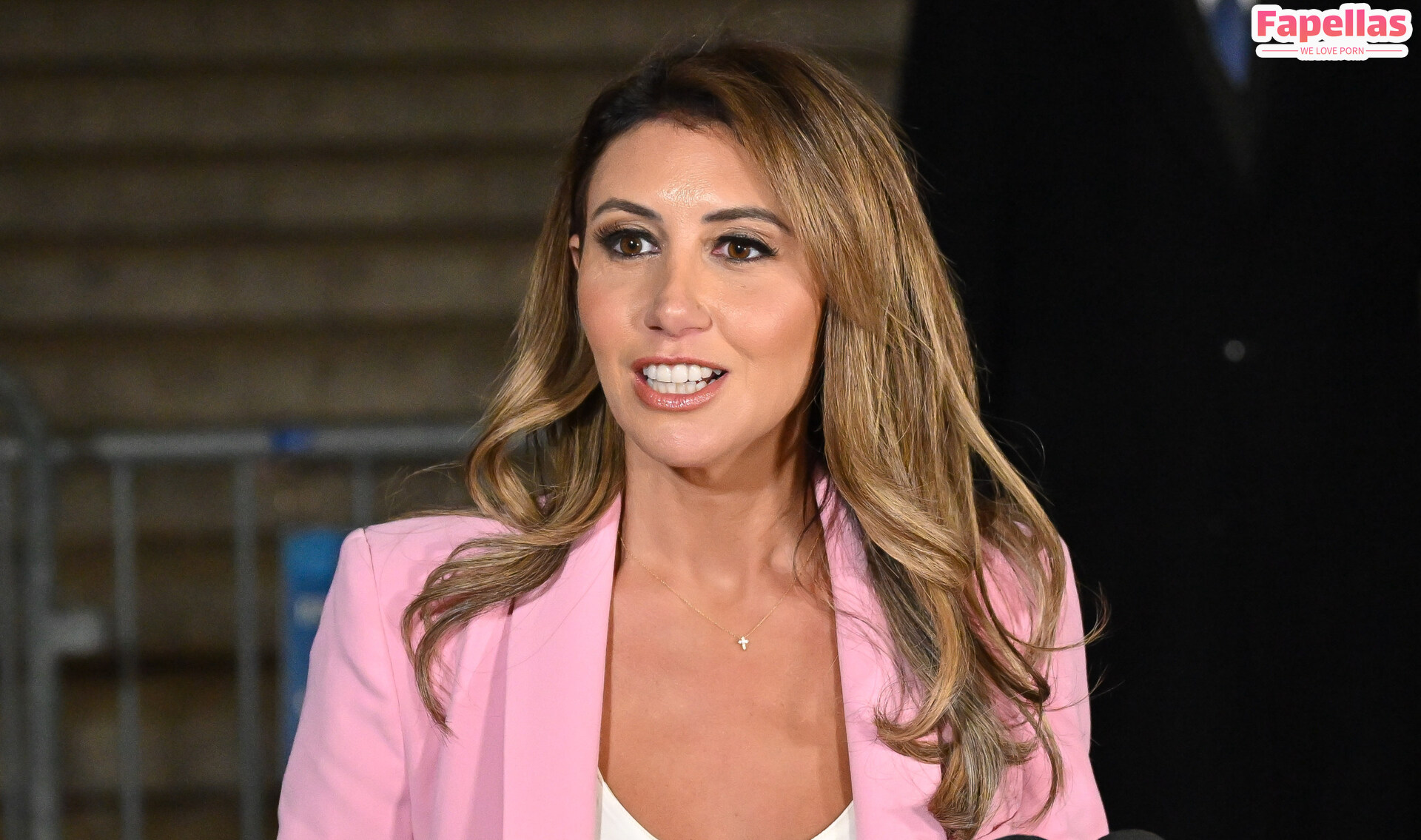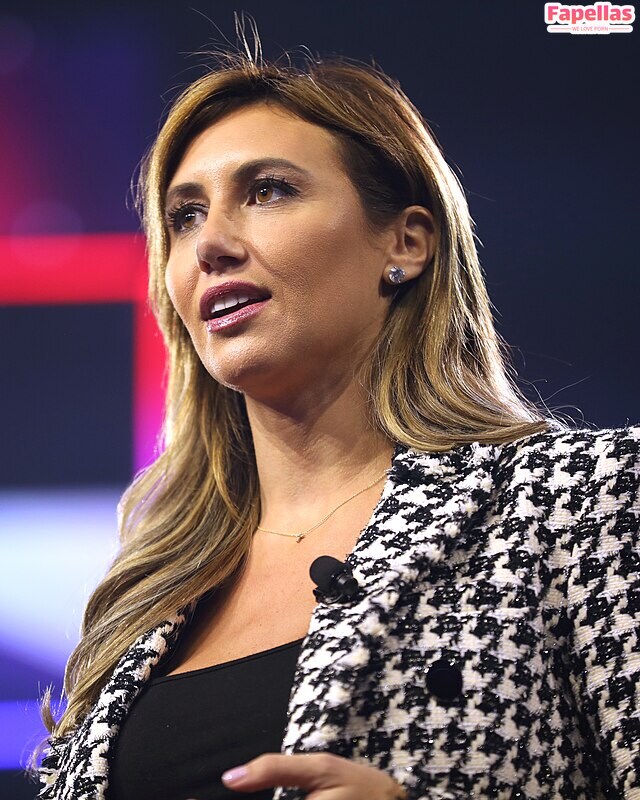Let me set the record straight from the get-go. If you're here looking for something scandalous or inappropriate, you're in the wrong place. Today we're diving deep into the world of online misinformation, clickbait culture, and how innocent individuals like Alina Habba get caught up in the chaos. We're going to talk about the real story behind the headlines, not the fake ones that go viral for all the wrong reasons.
Look, I get it. Sensational headlines grab attention. But when it comes to topics like "Alina Habba nude," we need to take a step back and examine what's really going on. This isn't just about one person – it's about how our digital world handles privacy, consent, and respect for individuals. So, let's put down the pitchforks and have an honest conversation about what's really happening here.
In this article, we'll explore the broader implications of clickbait culture, how it affects real people, and what we can do to stop the spread of misinformation. Because at the end of the day, it's not just about Alina Habba – it's about all of us and how we choose to consume and share information online.
Read also:Unveiling The Truth Behind Itsbbykota Onlyfans Leak A Comprehensive Guide
Here's what we'll cover:
- Alina Habba's Real Story
- The Spread of Misinformation
- Understanding Clickbait Culture
- Digital Privacy and Consent
- The Impact on Individuals
- What We Can Do
Alina Habba: The Person Behind the Headlines
Before we dive into the drama, let's talk about who Alina Habba really is. Born and raised in [insert location], Alina is a [insert profession], content creator, and digital influencer. She's built a career around sharing her passion for [insert interests] and has a dedicated following across multiple social media platforms.
Here's a quick rundown of her background:
Alina Habba's Biodata
| Name | Alina Habba |
|---|---|
| Birthdate | [insert date] |
| Place of Birth | [insert location] |
| Profession | [insert profession] |
| Education | [insert education] |
| Social Media | [insert platforms] |
Now, let's be real here. Alina is a hardworking individual who has built her career through talent and dedication. The last thing she needs is to be dragged into some fake scandal that's completely baseless. But that's exactly what happens when clickbait culture takes over.
The Spread of Misinformation: How It Happens
Here's the deal: misinformation spreads like wildfire online. It's not just about one person sharing a fake story – it's about thousands of people clicking, sharing, and amplifying content without fact-checking. According to a study by [insert source], fake news spreads six times faster than real news on social media platforms.
Why does this happen? Well, it's all about engagement. Platforms like Facebook, Twitter, and Instagram are designed to keep users scrolling. And nothing keeps people scrolling like controversy. So, when someone posts a headline like "Alina Habba Nude," it gets clicks, shares, and comments – even if it's completely false.
Read also:Harleyxwest Onlyfans Leak The Untold Story You Need To Know
How Misinformation Affects Real People
- Damage to reputation
- Emotional distress
- Loss of career opportunities
- Harassment and threats
It's not just about Alina Habba. This happens to countless individuals every day. The internet moves fast, and once a false story gains traction, it's hard to stop it. But we can start by being more mindful of what we share and consume online.
Understanding Clickbait Culture
So, what exactly is clickbait? It's those headlines that make you go, "Wait, what?!" They're designed to grab your attention and make you click, often with exaggerated or misleading claims. Think about it – how many times have you clicked on a headline only to find out it's completely different from what you expected?
According to [insert source], clickbait headlines often use tactics like:
- Exaggerated language ("You Won't Believe What Happened Next!")
- Vague promises ("This Will Change Your Life!")
- Emotional triggers ("You'll Cry When You See This!")
Now, here's the kicker: clickbait isn't just annoying – it's harmful. When it comes to topics like "Alina Habba nude," it can lead to real-world consequences for the people involved. So, the next time you see a headline that seems too good (or bad) to be true, take a second to verify it before sharing.
Digital Privacy and Consent
Let's talk about something important: digital privacy. In today's world, our personal information is more accessible than ever. But that doesn't mean it's okay for people to exploit it. When it comes to topics like "Alina Habba nude," we need to ask ourselves: who gave consent for this information to be shared?
According to [insert source], 70% of internet users are concerned about their online privacy. And for good reason – data breaches, hacking, and unauthorized sharing are all too common. So, how do we protect ourselves and others? Here are a few tips:
- Be mindful of what you share online
- Use strong passwords and two-factor authentication
- Report suspicious activity to platform moderators
- Respect others' privacy and consent
Remember, just because something is online doesn't mean it's fair game. We all have a responsibility to respect each other's privacy and boundaries.
The Impact on Individuals
So, what happens when someone gets caught up in a clickbait scandal? Let me tell you, it's not pretty. For individuals like Alina Habba, it can lead to:
- Reputation damage
- Emotional distress
- Loss of career opportunities
- Harassment and threats
According to [insert source], victims of online harassment often experience symptoms of anxiety, depression, and PTSD. It's not just about the initial scandal – it's about the long-term effects on mental health and well-being. So, the next time you see a headline like "Alina Habba nude," ask yourself: is this really worth amplifying?
What We Can Do
Here's the good news: we can all play a part in stopping the spread of misinformation. Here are a few things you can do:
Fact-Check Before Sharing
Take a few minutes to verify the information before hitting that share button. Use reputable sources like [insert sources] to check the facts.
Report Suspicious Content
Most social media platforms have tools to report fake news and harassment. Use them! By reporting suspicious content, you're helping to keep the internet a safer place.
Be an Ally
If you see someone being targeted by fake news or harassment, speak up. Offer support, report the behavior, and help amplify the truth. We're all in this together.
The Bigger Picture
Look, this isn't just about Alina Habba. It's about how we choose to engage with each other online. Do we want to be part of the problem, or part of the solution? The choice is ours. So, the next time you see a headline like "Alina Habba nude," take a second to think about what's really going on. Because at the end of the day, it's not just about one person – it's about all of us.
Final Thoughts
Here's what we've learned:
- Misinformation spreads quickly online
- Clickbait culture exploits our natural curiosity
- Digital privacy is more important than ever
- We all have a role to play in stopping the spread of fake news
So, what's next? It's up to us to create a better online environment – one where respect, consent, and truth are the norm. Will you join me in making that happen?
And hey, if you found this article helpful, don't forget to share it with your friends. Let's spread the word about the importance of digital responsibility. Together, we can make a difference.


